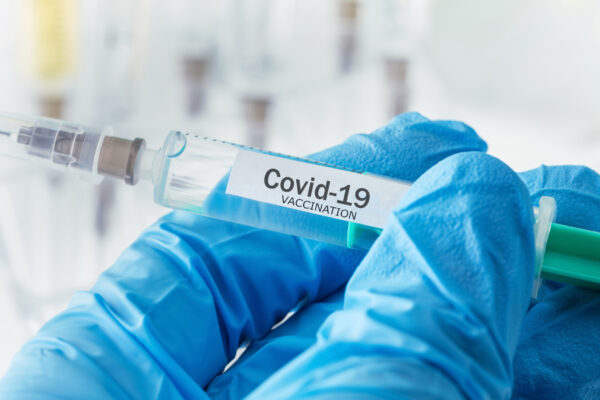
A coalition, comprising of health technology companies, providers and nonprofits, announced Thursday that they will establish an initiative to provide people with digital access to their Covid-19 vaccination records.
Two vaccines have so far been approved for administration in the U.S. — one developed by Pfizer and BioNTech, and the other by Moderna. The collaborative effort comes as doses of the vaccines are slowly making their way across the country, and people are figuring out what the next phase of the pandemic will look like.
That new phase will likely present unique challenges, including tracking who gets which vaccine, whether they get a one-or two-dose vaccine, where they receive their vaccine and so on, said Dr. John Halamka, president of Mayo Clinic Platform, in a phone interview. Currently, both Modera and Pfizer/BioNTech’s vaccine require two doses three to four weeks apart.
As the country thinks about opening back up and resuming to pre-pandemic levels of activity, “we [will] need a vaccine credential we can trust,” he said.
Mayo Clinic is just one of the high-profile organizations that have joined the coalition to create the Vaccination Credential Initiative. Others include Microsoft, Mitre, The Commons Project Foundation as well as EHR giants Epic and Cerner.
“We saw this as a critical opportunity to help our healthcare organizations and the world start the recovery process,” said David Bradshaw, senior vice president, consumer and employer solutions at Cerner, in an email. “We know vaccines will play a critical role in that and we wanted to be able to proactively inform and design to the specifications.”

A Deep-dive Into Specialty Pharma
A specialty drug is a class of prescription medications used to treat complex, chronic or rare medical conditions. Although this classification was originally intended to define the treatment of rare, also termed “orphan” diseases, affecting fewer than 200,000 people in the US, more recently, specialty drugs have emerged as the cornerstone of treatment for chronic and complex diseases such as cancer, autoimmune conditions, diabetes, hepatitis C, and HIV/AIDS.
The Vaccination Credential Initiative is developing a QR code that will enable individuals to easily provide their vaccination credentials when needed, Halamka explained.
The coalition has agreed on the standard for how the vaccine credential gets displayed in the QR code, he said. The standard was created by Josh Mandel, chief architect at Microsoft Healthcare, and is called the SMART Health Cards specification. It was developed with a short-term goal of allowing an individual to receive the Covid-19 vaccine or lab results and present these results to another party in a verifiable manner. The specification is based on the W3C Verifiable Credential — a credential that has authorship that can be cryptographically verified — and HL7 Fast Healthcare Interoperability Resources standards.
Now, the coalition needs to work on the “underlying plumbing behind it,” Halamka said. This includes figuring out how the patient gets access to the code after receiving the vaccine from whichever site they select — their doctor’s office, a Walgreens, a CVS, or any other vaccination site. Patients will have full control over their QR code and will be able to access it through any smartphone. They will have also the option of printing it out and keeping a physical copy.
The coalition’s efforts come on the heels of a much-maligned vaccine rollout. More than 30 million doses of the Covid-19 vaccines have been distributed, but only a little over 11 million have been administered, according to data from the Centers for Disease Prevention and Control.
In an effort to speed up the process, the Trump administration announced Tuesday that it plans to release all reserves of vaccine doses that were initially held back to administer second doses, The New York Times reported. The administration also told states to begin vaccinating every individual 65 and older and people with underlying medical conditions.
Looking ahead, the incoming administration has made it clear that vaccine distribution will be an early priority, with President-elect Joe Biden saying in a speech Thursday that his relief plan will include “hundreds of billions” of dollars for a national vaccination program and public health initiatives like testing and contact tracing, NPR reported. Biden has also committed to having 100 million people vaccinated in his first 100 days.
While that goal seems ambitious, were it to be achieved, getting back to normal will require a verifiable record of people being vaccinated.
Halamka believes that coalitions like this one can have a huge impact on easing that transition.
“When I see nontraditional coalitions coming together — and that means government, academia, industry — all work[ing] together for the benefit of society, we can achieve great change,” he said.
Photo: Teka77, Getty Images












